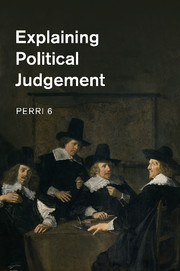Book contents
- Frontmatter
- Contents
- Figures
- Tables
- Acknowledgements
- Epigraph
- Chapter 1 On political judgement
- Chapter 2 The need for richer explanation
- Chapter 3 A Durkheimian theoretical framework
- Chapter 4 October 1962, before and after
- Chapter 5 The Khrushchev régime
- Chapter 6 The Kennedy administration
- Chapter 7 The Castro revolutionary régime
- Chapter 8 Implications
- Chapter 9 Coda
- Notes
- References
- Index
Chapter 5 - The Khrushchev régime
Published online by Cambridge University Press: 07 October 2011
- Frontmatter
- Contents
- Figures
- Tables
- Acknowledgements
- Epigraph
- Chapter 1 On political judgement
- Chapter 2 The need for richer explanation
- Chapter 3 A Durkheimian theoretical framework
- Chapter 4 October 1962, before and after
- Chapter 5 The Khrushchev régime
- Chapter 6 The Kennedy administration
- Chapter 7 The Castro revolutionary régime
- Chapter 8 Implications
- Chapter 9 Coda
- Notes
- References
- Index
Summary
The next three chapters concentrate on evidence for the theoretical propositions set out in Chapter 3. Each examines the data for one of the governments before and during October 1962. In each chapter, evidence is presented first for explanatory factors of institutions, social regulation and integration, and for the patterns of trust and the network forms which are their signatures and symptoms. Next, evidence for the forms of ritual in meetings and conversations is examined. Finally, the chapters examine aspects of political judgement such as risk framing and issue linkage. Each chapter shows the consistency of the patterns predicted at the end of Chapter 3.
Isolate institutions and networks
By the early 1960s, the Soviet Union's government was strongly constrained and weakly bonded internationally. The USA possessed huge nuclear superiority in numbers of warheads and delivery technologies, air power and other military technologies. Economically, the USSR was performing poorly; Khrushchev's own initiatives hardly helped. Relations with Mao's China were abysmal and drifting towards conflict. Third World client states were beginning to look to Beijing rather than Moscow for support. The events of 1953 in East Germany and 1956 in Hungary and Poland had shown the fragility of Soviet control over these buffer states. Khrushchev's efforts to alternate brinkmanship and détente had yielded little or nothing in Berlin, Laos or the Middle East. His antics on his American trip had undermined his own credibility internationally and among informed élites at home. Unable to sustain large-scale military expenditure, he had pressed upon his reluctant generals a defence doctrine of reliance on a modest nuclear arsenal of vast destructive power, rather than on huge conventional forces. For all Khrushchev's bluster, boasting and bravado, fundamentally the Soviet Union felt threatened, encircled, impoverished and unable to control the pattern of events at international level save by causing crises. From Stalin, the élite had learned that either the Soviet Union sustained its superpower status or its survival was under immediate threat. Shortly before his death, Stalin had prophesied that his epigones would be destroyed by the West. Those words rang in Khrushchev's ears throughout his period as First Secretary of the Party and Chairman of the Council of Ministers, the Praesidium (as the Politburo became known during Khrushchev's chairmanship). These facts of strong regulation and weak integration dominate the background to the crisis of October 1962.
- Type
- Chapter
- Information
- Explaining Political Judgement , pp. 161 - 201Publisher: Cambridge University PressPrint publication year: 2011



